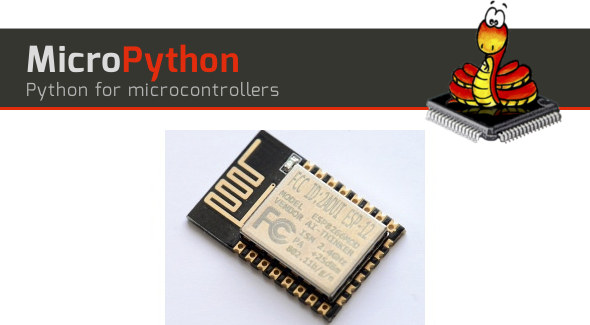MicroPython is an lightweight implementation of Python 3 that runs on ARM Cortex-M micro-controllers such as STM32 or Texas Instruments CC3200, and since ESP8266 is so popular, work has started to port MicroPython on the Tensilica Xtensa LX106 based WiFi SoC.
The current ESP8266 port comes with some API callss specific to ESP8266, but is quite basic, uses the execution model provided by Espressif, requiring callbacks to process WiFi requests, and doesn’t include support for many of the chip’s interface such as SPI, nor support WiFi fully.
That’s why Damien George, the project lead, has launched a Kickstarter campaign to help fund development of the port, aiming to raise at least 6000 GBP (~$8,500 US). The goal is to develop “proper” Berkeley sockets for MicroPython on the ESP8266, in order to provide a true Python socket API to make development easier, optimize RAM usage, and implement the missing parts on the current port.
Since there are so many ESP8266 modules on the market, they decided to do a software only crowdfunding campaign. Backers will receive MicroPython ESP8266 firmware for their development board – It will be developed on Adafruit HUZZAH boards -, as well as tutorials and documentation, with the source code released 6 months later, unless the 12,000 GBP stretch goal (~$17,000 US) is reached, in which case they’d just release the code at the end of the campaign.
Pledges start at 7 GBP ($10) and go up to 700 GBP (~$1,000), and the more you spent the higher support and influence (vote on modules) will be. MicroPython ESP8266 v1.0 firmware is expected to be released in May 2016.
Thank you John!

Jean-Luc started CNX Software in 2010 as a part-time endeavor, before quitting his job as a software engineering manager, and starting to write daily news, and reviews full time later in 2011.
Support CNX Software! Donate via cryptocurrencies, become a Patron on Patreon, or purchase goods on Amazon or Aliexpress





